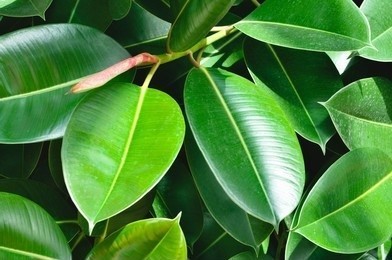Ficus Plant Tissue Culture
Ficus plants belong to the Moraceae family, with about 1,000 species worldwide, distributed in tropical and subtropical regions. Ficus plants are trees, shrubs, or vines, mostly evergreen and often with aerial roots. Most Ficus plants are widely used in landscaping because of their robustness, graceful form, good shade, pruning resistance, and ease of modeling.
 An evergreen tree in the genus Ficus
An evergreen tree in the genus Ficus
We have used plant tissue culture methods and selected suitable
explants to establish a Ficus tissue culture fast-breeding system,
which improves the propagation coefficient, shortens the
propagation time, and reduces the production cost.
Most Ficus plants prefer warm, hot and rainy climates and acidic soils, and are robust, adaptable, fast-growing, pollution-resistant, tolerant of heat and humidity, barrenness, shade and cold, and easy to transplant and long-lived. These habits make Ficus plants grow well even under harsh environmental conditions, making them ideal low-maintenance landscaping species.
- Street trees
- Garden trees
- Shade trees
- Trees for greenery
- Stump trees
- Hedge and green sculpture
- Groundcover plants
- Vertical greenery
- Indoor greenery decoration
Tissue culture service
Under natural conditions, Ficus plants usually rely on animals to reproduce by feeding on their fruits. The main artificial propagation methods of Ficus are seed propagation and cuttings propagation. However, some Ficus plants either have low fruit set, low seed number, or difficult seed germination, or low efficiency of cuttings propagation, so Lifeasible provides tissue culture technology services as an optimal way to propagate Ficus plants artificially.
Cultivation pathways
- The leaves and petioles of Ficus plants are used as explants to establish an ex vivo regeneration system through dedifferentiation and redifferentiation.
- The stem tips of Ficus plants are used as explants to establish an in vitro propagation system through clump shoot induction, proliferation, and rooting.
Hormone ratios are particularly important in the induction of clump buds of Ficus plants. Generally, we use different concentrations of 6-BA, TDZ, KT, etc. with different concentrations of NAA, IAA, etc. to be able to induce clump buds efficiently.
Rooting culture is an indispensable stage of plant tissue culture. In Ficus plant culture, we mostly use NAA and IAA in the rooting culture stage, either alone or in combination. The basic medium is usually MS and 1/2 MS. Depending on the situation, we also add activated charcoal to the medium to promote a strong root system in rooted plants.
You want to sign a confidentiality agreement.
You have a specific plant species for your experimental needs.
You have a reliable and relevant cooperation project to discuss.
You are very interested in our project or have any questions.
You need an updated and detailed quotation.
For research or industrial use.

 An evergreen tree in the genus Ficus
An evergreen tree in the genus Ficus
